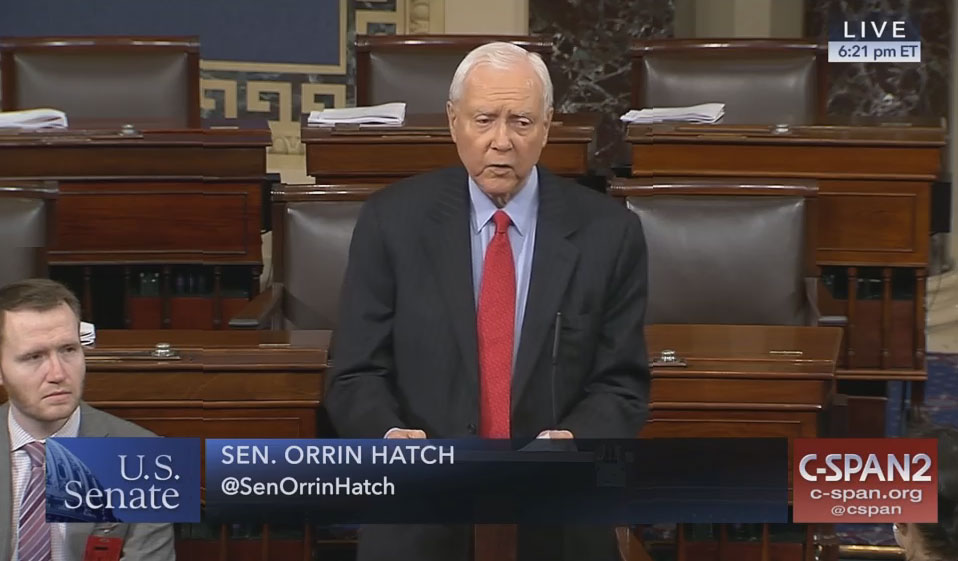 A decades-long US music battle is winding to a conclusion with full Senate passage of the Music Modernization Act today. Continuing opposition by SiriusXM and some last minute maneuvering by the Blackstone Group, owner of SESAC and the Harry Fox Agency, kept things contentious up until the last minute, but were not perceived as serious threats to senate passage of the bill, which has enjoyed bipartisan support and is popular among industry constituencies.
A decades-long US music battle is winding to a conclusion with full Senate passage of the Music Modernization Act today. Continuing opposition by SiriusXM and some last minute maneuvering by the Blackstone Group, owner of SESAC and the Harry Fox Agency, kept things contentious up until the last minute, but were not perceived as serious threats to senate passage of the bill, which has enjoyed bipartisan support and is popular among industry constituencies.
Senator Orrin Hatch (R-UT) in May introduced S.2823, a mirror version of the bill passed unanimously by the House in April. Senator Lamar Alexander (R-TN) called it “the most important piece of legislation in a generation to help make sure songwriters in this country are paid, and paid a fair market value for their work.” Alexander shared that he holds a one-forth interest in a song called “Falling Apart Together,” the inspiration for which he gleaned from constituents in a parking lot. Alexander also proposed the legislation be renamed in honor of Hatch, a songwriter and pianist with a platinum and gold record to his credit.
That suggestion may not go over so well in the House, where Rep. Chuck Grassley (R-IA) has been pushing the bill forward like Sisyphus, the Greek mythological figure who pushed the proverbial boulder up the hill.
“I can’t say that I’m a great songwriter, but it’s been one of the most enjoyable and productive experiences to write songs for me, and those who write with me, and I feel really, really indebted to everybody in the Senate and the House for doing this, for help spurring on music in this country and to get people treated properly from a a remunerative standpoint,” Hatch said from the floor, singling Alexander out for musical kudos: “he’s as good a pianist as anyone I know.”
Highlights from the combined bills are as follows.
Music Modernization Act (MMA):
- The MMA creates a new, simplified licensing system to make it easier for digital music companies to obtain a license for songs.
- The simplified system will also ensure songwriters are paid the royalties they are owed.
- In addition, the bill revises outdated songwriter royalty standards to ensure songwriters are paid a fair market rate for their work.
Compensating Legacy Artists for their Songs, Service, & Important Contributions to Society (CLASSICS) Act:
- In the 1970s, Congress extended federal copyright protections to sound recordings fixed after February 1972.
- The CLASSICS Act requires digital music services to pay for the use of pre-1972 sound recordings in the same way and at the same rate they pay for recordings fixed after 1972.
- SoundExchange, the entity that collects and distributes digital performance royalties for sound recordings, will collect royalties for pre-1972 recordings, as it does for recordings made after 1972.
Allocation for Music Producers (AMP) Act:
- Under current law, although recording artists have a right to a percentage of the royalties collected for digital performances of sound recordings, producers and engineers have no such right.
- The AMP Act would establish a procedure for producers and engineers who worked on sound recordings to apply for a share of the royalties.
One Response to "Senate Passes Music Modernization Act"
Comments are closed.


Pingback: Trump Signs Music Modernization Act Into Law | MaxTheTrax